Take Heart, Part 2: Diet & Heart Health
Take Heart, Part 2:
Diet & Heart Health
In our previous newsletter on heart health we discussed beneficial supplements for a healthy heart. In this second installment we will look at what to avoid (and offer alternatives) for a healthy heart with regard to certain dietary factors and also supplements.
Red Meat / Homocysteine & Heart Health
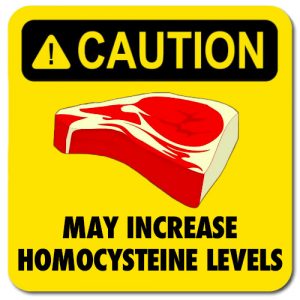 It is now accepted that too much red meat is not healthy for several reasons. Most people are concerned with the levels of saturated fat it may contain. Others realize that there is no fiber in red meat, and a lack of fiber can be a contributing factor for cancers of the colon and other parts of the digestive tract. One more good reason to cut down on red meat, however, is the presence of the toxic amino acid homocysteine. Homocysteine is a risk factor for cardiovascular disease. It is implicated in blood vessel damage and the consequent increase in heart disease.
It is now accepted that too much red meat is not healthy for several reasons. Most people are concerned with the levels of saturated fat it may contain. Others realize that there is no fiber in red meat, and a lack of fiber can be a contributing factor for cancers of the colon and other parts of the digestive tract. One more good reason to cut down on red meat, however, is the presence of the toxic amino acid homocysteine. Homocysteine is a risk factor for cardiovascular disease. It is implicated in blood vessel damage and the consequent increase in heart disease.
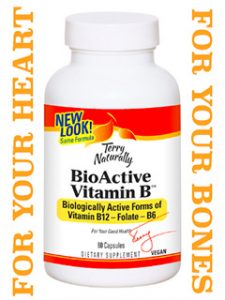 Nutritionally speaking, other factors that contribute to elevated homocysteine levels are inadequate intake of certain B vitamins. Folic acid, vitamin B12 and vitamin B6 break down homocysteine into other substances to be utilized by the body. Yet animal proteins are the primary source of homocysteine. Simply adding more plant protein, such as Genuine Health’s Fermented Organic Vegan Proteins, and eschewing that sirloin will help your heart.
Nutritionally speaking, other factors that contribute to elevated homocysteine levels are inadequate intake of certain B vitamins. Folic acid, vitamin B12 and vitamin B6 break down homocysteine into other substances to be utilized by the body. Yet animal proteins are the primary source of homocysteine. Simply adding more plant protein, such as Genuine Health’s Fermented Organic Vegan Proteins, and eschewing that sirloin will help your heart.
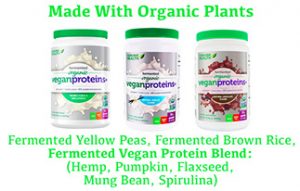
Inflammatory Dietary Choices & Heart Health
Cholesterol buildup and atherosclerotic plaque in arteries are obviously risk factors for heart disease. Cholesterol is not a bad thing, as some people believe, since it is required for hormone synthesis in the body, among other roles. It becomes a problem when oxidation and inflammation damage the cardiovascular system.
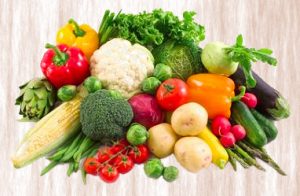 An anti-inflammatory, antioxidant-laden diet can help to prevent and even reverse the damage done by a nutrient-devoid diet. Brightly pigmented fruits and vegetables contain anti-inflammatory compounds and nutrients such as carotenoids which address oxidation of tissues. When your mother asked you to eat your vegetables she knew what she was talking about.
An anti-inflammatory, antioxidant-laden diet can help to prevent and even reverse the damage done by a nutrient-devoid diet. Brightly pigmented fruits and vegetables contain anti-inflammatory compounds and nutrients such as carotenoids which address oxidation of tissues. When your mother asked you to eat your vegetables she knew what she was talking about.
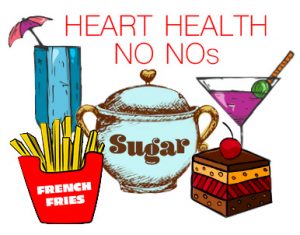 Excess alcohol, processed, adulterated fats, sugar, table salt, refined carbohydrates and processed foods are all inflammatory in the body. These can also contribute to a rise in blood pressure as blood vessels are damaged, another cardiovascular risk. Refined sugar and flour, in particular, strip or leach B vitamins from the body, potentially setting up a rise in homocysteine levels and attendant damage and heart disease risk.
Excess alcohol, processed, adulterated fats, sugar, table salt, refined carbohydrates and processed foods are all inflammatory in the body. These can also contribute to a rise in blood pressure as blood vessels are damaged, another cardiovascular risk. Refined sugar and flour, in particular, strip or leach B vitamins from the body, potentially setting up a rise in homocysteine levels and attendant damage and heart disease risk.
Excess alcohol, processed, adulterated fats, sugar, table salt, refined carbohydrates and processed foods are all inflammatory in the body. These can also contribute to a rise in blood pressure as blood vessels are damaged, another cardiovascular risk. Refined sugar and flour, in particular, strip or leach B vitamins from the body, potentially setting up a rise in homocysteine levels and attendant damage and heart disease risk.
Excessive intake of polyunsaturated omega-6 oils such as corn, sunflower, canola, peanut and safflower has been shown to create inflammation in blood vessels. A dietary intake of healthy omega-3 oils such as fish oil, flax oil, walnut and hemp is required to offset and prevent the inflammatory damage the omega-6 oils cause. High heat damages oils used for cooking and creates toxic by-products (lipid peroxides) which create widespread damage in the body. Consumption of lipid peroxides or their breakdown products has been found to seriously compromise cardiac function (not to mention damaging the liver and other tissues). Choose heat-stable oils for frying, such as coconut oil, red palm, rice bran and macadamia. These oils are saturated and mono-unsaturated and thus are much better able to withstand higher temperatures than polyunsaturated oils.
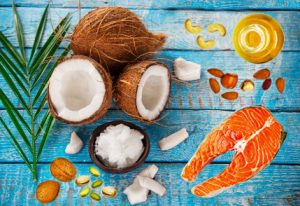
When buying healthy omega-3 polyunsaturated oils such as liquid flax and hemp, remember that they need to be refrigerated and under no circumstances should be heated. (See our newsletter on Antioxidants to learn how to combat dangerous lipid peroxides.)
Calcium & Heart Health
In the 1970s and 1980s an interesting phenomenon took place with regard to women’s health. Most post-menopausal women under a doctor’s care were exhorted to drink 4-6 glasses of milk daily as well as take calcium supplements of more than 1,000 milligrams. This would help their bones, they were told. Bafflingly, most of the women following these instructions developed osteopenia or osteoporosis as well as heart disease. Why was this? The answer lies in simple human nutrition. Minerals require a balance, often delicate, too much of one will deplete another and so on. Also, co-factors are required for absorption and utilization in the body, particularly with respect to calcium and bone.

Too much calcium without adequate co-factors damages blood vessels and contributes to atherosclerotic plaque, setting up risk for heart attack. In addition, calcium ratios out of balance with magnesium, potassium and sodium disrupt the heart’s electrical conduction thereby causing rhythm disturbances, potentially very serious. The class of drugs known as calcium-channel blockers addresses this issue. Calcium and sodium overload in the heart cells also cause mitochondrial damage leading to diminished energy production. These two problems combined can result in sudden death from cardiac arrest.
Calcium-channel blockers were designed to decrease the calcium to magnesium balance inside the cell. However, there are nutritional methods to accomplish this as well. Reducing calcium in the diet or supplements, for instance, will help, although if bone health is of concern one needs to make sure one receives co-factors for calcium utilization in the body. Vitamin D3 and Vitamin K2 (MK-7), along with magnesium will help bone health more than will taking mega-doses of calcium. Remember the women consuming huge amounts of calcium supplements and milk and still breaking bones (and getting heart attacks)? Magnesium is essentially nature’s calcium-channel blocker. Magnesium contributes to energy production also, further helping the heart.
Back to Blog